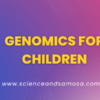What is the best food to feed your dog?

What do you feed your dog – kibble, drools, pedigree or rice, wheat, egg, meat, sambar, or just whatever is leftover at home. If the above three is your answer, then you are not doing it the right way. Dogs belong to the large taxonomic family called Canidae and are genetically way too different from humans – only 25% of the DNA sequence in the dog genome exactly matches the human sequence.
So stop believing that what you like, your dog will like it too
It is important to ensure the dog’s food is both complete and balanced for its stage of life, age, size, weight, health condition, and breed. The dog needs protein (animal meat, seafood, dairy, or eggs), fat (from meat or oil), and carbohydrates (grains or vegetables). They also need calcium (from dairy), and essential fatty acids (from certain plant oils, egg yolks, oatmeal, and other foods). It is ideal to request the vet for a balanced recipe and then stick to the menu.
5 ideal food for Dogs
1. Bone Broth: Bone broth is rich in minerals, including silicon, sulphur, magnesium, calcium and phosphorus. They help dogs in having a healthy gut, strong joint and immune system. Also bone broth is super easy to make. Use bones with a lot of joints in them like chicken feet. Add to it about three or four tablespoons of apple cider vinegar and fill the brim of the pot with water. Cook it on highflame for an hour, then on simmer for 24 hours. Bone broth is ready.
2. Raw Goat Milk: Goat milk is rich in fat soluble vitamins A, D and K2, probiotics and digestive enzymes. For small dogs one can give ¼ cup per day ,for medium dogs ½ cup per day and ¾ cup per day for large dogs.
3. Organ meat: Organs and glands are loaded with nutrients. It is ideal to give your dog organs like liver, kidneys, adrenal glands, pancreas, brain, stomach (tripe), and heart.
Liver: vitamin A, B, iron, folate, zinc, amino acids, ribonucleic acid.
Kidney: vitamin A, B12, riboflavin, iron
Heart: CoQ10, vitamin B12, amino acids, collagen
Adrenal glands: vitamin C Brain: omega-3, selenium, zinc, vitamin B12
4. Eggs: They are full of proteins and easily accessible. Also one can give them raw or cooked eggs to dogs without much mess. An egg a day is good for a large dog and half a portion for puppies.
5. Chicken: This is another ingredient that is easy to cook and rich in nutrients. Take half portion of chicken and simply boil it in water for 10-15 minutes. No need to add any seasoning or herbs. Dogs love it just plain. One could even add some rice to the broth and make it a complete meal.
Some ”people food” that dogs will love too
- Most fish, including tuna and salmon
- Whole (cooked) grains, like brown rice, wheat, oatmeal, and quinoa
- Any raw or steamed vegetables – carrots, green beans, broccoli, cauliflower, peas, brussels sprouts, etc. (but no onions)
- Lettuce and other leafy greens
- Boiled potatoes: Regular potatoes and Sweet potatoes
- Homemade Peanut butter
- Milk, cottage cheese, or plain yogurt in small quantities
- Fruits including apples, pears, and bananas in small portions (but no grapes or raisins)
Foods that are bad for Dogs
1. Chocolate, Coffee, and Caffeine: Methylxanthines present in Chocolate, Coffee, and Caffeine makes it toxic for pet’s health
2. Onions, Garlic, and Chives: These foods can cause gastrointestinal irritation in pets and could lead to red blood cell damage
3. Salty Snack Foods: Salt-heavy foods like chips can lead to excessive thirst and urination, and even sodium ion poisoning in pets
4. Almonds, cashews, and walnuts: These nuts contain high amounts of oils and fats, which can cause vomiting, diarrhea, and even pancreatitis in pets
5. Alcohol: Dogs should never be given alcohol
6. Lemon, lime, and orange: The citric acid found in fruits such as grapefruit, lemon, lime, and orange, can cause diarrhoea and vomiting








